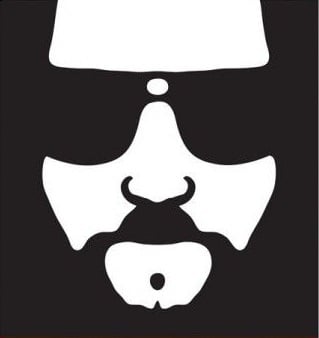Coffee is the best tea
deleted by creator
If it doesn’t come from the Camellia sinensis region of France it’s not real tea, just sparkling leaf water
Thank you! Tisanes are not tea. I will die on this hill.
TIL a new fancy word.
That is why I’m an ingredient purist. And I should add that Chamomile is an herbal infusion. No quote needeed. Don’t offer me tee if your want to serve me some chamomile. Don’t offer me tee either if you want to serve me hot water and present me an assortiment of plant a small bag. Tell me your going to serve hot water and I will chose what I drink.
And to keep the rant going in french “herbal tea” does not even have the “tee” word in it. So it is even more frustrating when someone offer you tee and you end up with some random “tisane” *rolling his eyes*
I guess I’ll just offer you nothing then and instead ask you to leave? ¯\(ツ)/¯
If it’s not made of tea, it’s not tea. It’s an infusion.
It’s extra annoying to me because in my first language there’s separate words for “tea-tea” and “some boiled herbs-tea” that are commonly used, but thanks to lazy translation people are beginning to call everything “tea”.
If you boil coffee it’ll be over extracted, bitter, and nasty.
“Preparation purist” is wrong. You don’t boil the tea, you steep it in hot water. For some teas, like black tea, you usually boil the water before pouring it over the tea, but other types of tea use water that isn’t as hot (e.g. around 70-80°C for green tea).
Also, if you actually want to be an ingredient purist, tea must be made from the leaves of Camellia sinensis (or a closely related species).
It depends of the kind of tee your using. Once I bought the wrong type of turkish tea and next thing I now I’m boiling my tea during month so I don’t drink a slighty darker version of hot water.
You’re arguing with a meme that put clogged gutter as pure tea ingredient
The meme is terrible and shows the creator has taste buds that probably can’t distinguish between gutter water and tea (especially after it’s been BOILED a few hours).
Correct. That would be tea as long as it’s camellia sinensis.
That’s the spirit
No, it’s tea
No, this is Patrick.
You’re a purist.
Im also correct
In China it’s called 地沟茶
i mean, if you consider tea to be leaves soaked in water until the flavor comes out, then clogged up gutter water is tea.
In some countries where tee grows naturally you can found riviers and pond where the water carried tea leaves fell from the tree, which give naturally to the water some aroma.
What’s the proper steeping time for decaying oak leaves “until the flavor comes out”?
I’d say you should steep them for up to a year, that way you get all the taste.
Excellent, I’ll be ready to sell my current batch this coming October.
I’ve been to a workshop about green tea recently and you can prepare it with any water temperature. You can make it with cold water, it just takes longer. You can even place ice cubes into the can, put tea leaves on top and let them melt
Ice brewed tea is a thing in the US. Take a pitcher with water and ice, throw it in the fridge overnight with some tea bags
deleted by creator
Zing!
I’m steeping in sweat and I drank a lot of camellia sinensis, am I tea?
Unfortunately for you, yes. Please report to the nearest Tetley factory for processing.
It depends. It’s perfectly acceptable to boil the tea for many Indian preparations (usually called cha or chai).
That’s not tea, it’s chai.
Which is a type of tea.
Sure, if you think preparation and ingredients don’t matter. Enjoy a hot, steaming, cup of Saturn.
Why do you think that the Chinese way is the only way to prepare authentic tea? It’s so weird dude. We have an ancient tea tradition in India. That’s my point. That a purist might think this method as the proper way too. And it’d be just as valid.
It’s not weird at all. China invented tea (Camellia sinensis). The cultivation techniques, the drying and fermenting, and the brewing techniques for various types of black, white, green, and oolong tea. They named it, too. Both “tea” and “chai” are derived from the Chinese word for tea.
Tea wasn’t cultivated in India until the nineteenth century, when it was introduced by colonial British who literally stole tea plants and seeds from China in an act of corporate espionage. At that point in time, China had been cultivating tea for multiple millennia, and exporting it around the globe for several hundred years. India initially produced CTC (cut, tear, crush) tea on colonial plantations for export, only later (in the 1900s) selling tea to the domestic Indian market, when the practice of adding CTC black tea to masala chai took off in India.
What’s weird is that you’ve bought into some kind of alternate history where India invented tea.
True, I forgot about that!
100% agreed.
Though I’m firmly in the “coffee is tea” camp
Coffee is hot bean juice
Coffee beans aren’t true beans. They are the pit seeds of the coffee cherry fruit, similar to other stone fruit such as cherries, peaches, plums, olives, and dates.
Okay, coffee is hot seed then
It’s hot pit water.
As is miso soup
Coffee with vanilla and soy milk is a three bean soup.
As a bean purist, I have to disagree. (My puristic view: a bean can only come from a legume.) It’s a one bean soup.
AKA Chili.
No that’s spoiled bean juice
As long as you’re not claiming to be a purist I’ll allow it.
Thank you. I am horrified that I had to scroll past a discussion of “is pho tea”? to get here. The so-called purist has never even made a proper cup of tea! So obviously pho is NEVER tea, since stock is extensively boiled.
You hit the issue, theyre confusing tea, a specific plant, with an infusion. Herbal tea is more correctly called an herbal infusion. Tea is a type of herbal infusion.
From https://en.m.wikipedia.org/wiki/Herbal_tea :
… most dictionaries record that the word tea is also used to refer to other plants beside the tea plant and to beverages made from these other plants. In any case, the term herbal tea is very well established and much more common than tisane.
Furthermore, in the Etymology of tea, the most ancient term for tea was 荼 (pronounced tu) which originally referred to various plants such as sow thistle, chicory, or smartweed, and was later used to exclusively refer to Camellia sinensis (true “tea”)
I think the confusion come from the fact that in many languages and cultures the name for tea and plant infusion is the same. Tea is name plant infusion because it is among the go to infusion if no plant is mention. But then in these language the name for “herbal infusion” or “herbal tea” does not contain the name of the specific plant “tee”. This or the languages got it wrong. Yes, I go that far.
ISO 3103. RTFM!
Misread that as Nobel prize and …lol wtf
This standard is not meant to define the proper method for brewing tea intended for general consumption, but rather to document a tea brewing procedure where meaningful sensory comparisons can be made.
I came to say the same thing about Camellia sinensis, thinking “am I about to be more of a tea purist than is even encapsulated in this chart?” So I’m glad somebody else got there first lol
Coffee isn’t a tea, as you don’t boil it. If you boil it, you burn the coffee! That’s an extraction - you can steep it, but it’s better if you just push the water through at high pressure (which will royally screw up a tea).
Ah, pedantry in pedantry. So - now for Lemmy to tell me what I’ve gotten wrong :-D
I boil my coffee, and a lot of people do. Espresso and derivatives are rather new way of making coffee, the old way is by boiling a coffee.
Boiling green tea is also considered burnt, as green teas recommended steeping temp is 170-175, unless I misunderstood what you mean there.
No, that’s fair. Coffee at pressure is about 93 - 95°C… No idea for drip/french press/v60 etc. as I don’t use those For Aeropress, I’d wait until the kettle stopped making noise, that seemed to be a good balance without burning the oils.
I do boil coffee. One of us might be a coffee preparation purist.
Teas are generally not boiled, but steeped in hot water that was boiling a moment ago. I was going to say that cowboy coffee is boiled, but then I looked it up, and even then, the pot is pulled off the heat before adding the grounds.
Really feels like one should be “tea is made from tea”
except… with “pure” tea you don’t consume the original ingredient. (eating tea leaves or coffee grounds? eeww.)
pho, etc you do. ergo, not tea.
In that instance a clogged gutter is still tea
Might be cleaner than some people’s tea pots… 😅
Pho is just animal oil/juice suspended. Everything else is like milk, honey, lemon, sugar, etc. that people do consume in tea.
what about the rice noodles, chicken, mushrooms, etc etc.? come on.
So if a deranged person drinks the broth without eating the ingredients, did they then turn their pho into tea?
Pho is just a loose-leaf tea.
that’s only true if you eat tea leaves.
No, because you don’t really make tea by boiling tea leaves. Tea is an infusion made from pouring hot water over tea leaves. Not boiling tea leaves.
they didn’t have pho to start with. they just drank one of the ingredients of pho.
Wait, so then we have the comparison all wrong. Pho isn’t Vietnamese Tea, Tea is British Pho?
no.
Pretty sure its pronounced “Nuh”
As the other person mentioned, the base of pho is the stock which includes steeped plants. So it’s tea with some other things thrown in it.
What about stock? Take some bones, spices, and vegetables; boil them in water; and strain out all the solids. You’re left with nothing but a flavored liquid.
sure, stock is tea. the base of pho is tea, but pho isn’t pho until you at least put some noodles in it. Until then, it’s just ingredients for pho.
Now you’ve got a stew going!
It’s only tea if it’s made from the tea region of the plant. Anything else is sparkling suspension
I would try some saturn
It’ll fill you with gases
I’m for any kind of gastronomy
Anyone who would say no to a nice hot cup of Saturn is deranged.
Preparation futurist, Ingredient singularity:

I have never rewatched Voyager and I think I have to soon.
There’s a singularity in that nebula.
So because i make cold berry tea in summer and think coffee is a tea too, i’m a “crude oil is tea” sort of guy? 🤨
What, you don’t enjoy a nice iced crude oil on a hot summers day?
Son, fetch me another can of that crude oil, I’m mighty parched
How 'bout a little dollop of microplastics on my asbestos pancakes? Got a long day of work ahead.
I’m sorry, but BOILING? You do not BOIL tea leaves unless you are an absolute heathen. You may pour just-off-the-stove, formerly boiling water over black tea leaves, making the tea about 210 degrees Fahrenheit. But you do NOT put allow water with tea leaves in it to BOIL unless you are seriously deranged.
Yeah this. Biggest mistake most people that hate tea make is they dont bother learning that tea has specific temps for brewing depending on the leaves and that pouring boiling water off the stove on it will make most teas bitter.
Many teas are best at 85-90C, just off the boil.
I guess I’m an ingredient purist, preparation rebel. If your house is surrounded by tea plants, and the tea leaves fall in the gutter, how is that different from brewing tea the normal way?
Water isn’t the ideal temperature. Everyone knows black tea must be made with water that’s 212-210 degreases Fahrenheit
JFC, for someone so bent about the proper way to prepare tea, one would think you’d be able to spell “degrees”
LOL I know how to spell degrees. I probably hit the wrong key and spellcheck autocorrected it to something random. Welcome to 2024.
Does your gutter contain 90°C hot water?
Hey, that’s basically tea’s origin story.
In Chinese legend, Emperor Shennong was drinking a bowl of just boiled water because of a decree that his subjects must boil water before drinking it.[12] Some time around 2737 BC, a few leaves were blown from a nearby tree into his water, changing the color and taste. The emperor took a sip of the brew and was pleasantly surprised by its flavor and restorative properties.
mighty brave for an emperor to look see that their water has changed color, and decide to try it anyway.
Yeah. Likely an emperor’s chief taster/minion discovered Tea and credit was stolen.

This is cool. Why would I want this?
For liquid fertilizer, but seems silly when you can get the same results but just throwing the compost in the water and stirring it around, letting the solids sink to the bottom.
I’ve never used it, but the idea is that nutrient uptake will be faster than if someone just dressed the top of the soil with compost. The extra aerobic bacteria could also be beneficial.
Crude oil is texas tea, but mac and cheese requires milk not water.
milk is tea
I think I’ve seen mac and cheese cups that ask for hot water.
Do you people not put milk in your crude oil? I find it suits the subtle bitterness of Alberta tar to give it a wonderful but subtle aftertaste.






















